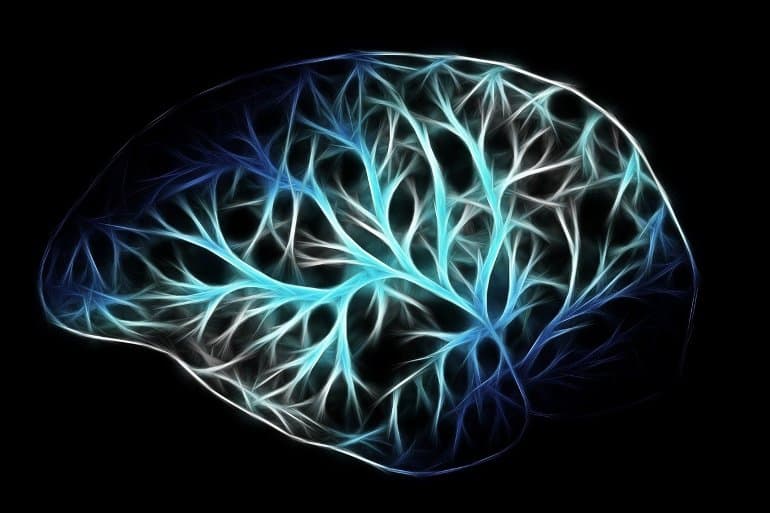Summary: Diet and exercise can influence hippocampal neurogenesis, researchers say. Poor nutrition and lack of exercise have detrimental effects on hippocampal neurogenesis, increasing the risk for dementia.
Source: King’s College London
New research from the Institute of Psychiatry, Psychology & Neuroscience (IoPPN) at King’s College London has found that both diet and exercise can influence the risk of cognitive decline (CD) and dementia by potentially influencing hippocampal neurogenesis (the process by which the brain produces new brain cells) long before their onset.
The study, published in Alzheimer’s & Dementia: The Journal of the Alzheimer’s Association, suggests that altered neurogenesis in the brain could potentially represent an early biomarker for both CD and dementia.
The investigation studied how the blood of participants with and without CD and dementia could influence hippocampal neurogenesis in laboratory settings and whether diet and exercise were important factors.
Specifically, blood samples of 418 French adults over the age of 65 were collected 12-years prior to CD and dementia diagnosis and tested on human hippocampal stems cells.
Additionally, information on each participant’s sociodemographic, lifestyle, and clinical data were collected and incidence cognition status and dementia were measured every 2 to 3 years over a 12-year period.
Over the course of the study, the researchers established that 12 years prior to diagnosis, both CD and Alzheimer’s were associated with levels of neural stem cell death.
The team also found that exercise, nutrition, vitamin D levels, carotenoid and lipid levels are all associated with the rate at which cells die off.
Furthermore, physical activity and nutrition were key factors that then also determined CD status. Specifically, researchers found that reduced physical activity and increased malnutrition both increased cell death which in turn increased the risk for future CD.
While previous studies have established that diet and exercise have some protective effects against CD and dementia, these roles have been poorly understood at the neurobiological level.
To date, studies on animals have shown how diet and exercise can directly influence hippocampal neurogenesis, potentially explaining how exercise and diet may biologically exert their effects, but this study sheds further light on this in the context of a human model.
Doctor Sandrine Thuret, the study’s lead investigator from King’s IoPPN said “Our study has demonstrated not only that there are individual markers of hippocampal neurogenesis associated with CD and dementia 12 years later, but also that there is some degree of specificity with respect to diagnoses of dementia subtypes.

“Specifically, if an individual displays an increase in their levels of cell death during differentiation (when neural stem cells are becoming neurons), we can look at this as a potential warning sign of CD. Conversely, a decrease in levels of cell death during proliferation (the process by which a single cell divides into a pair) and reduced hippocampal progenitor cell integrity could be viewed as a predictor for Alzheimer’s Disease and Vascular dementia, respectively.”
According to Alzheimer’s Research UK, there were a total of 525,315 people living with a dementia diagnosis in the UK in 2020. Rates of cognitive decline and dementia are expected to triple in prevalence by 2040.
Dr Andrea du Preez, the study’s first author from King’s IoPPN said, “While more work is undoubtedly needed to fully understand how diet and exercise might modulate hippocampal neurogenesis, our findings may represent an effective early preventative strategy against CD and dementia.”
Funding: This project was part of the EU consortium DCogPlast ‘Diet Cognition and Plasticity” led by Dr Thuret and funded by JPI-HDHL, the Medical Research Council UK, the French National Research Agency MINECO, CiberFES- Cofund by FEDER Program from EU, Academia Award from the Generalitat de Catalunya, and the BMWFW.
About this dementia research news
Author: Patrick O’Brien
Source: King’s College London
Contact: Patrick O’Brien – King’s College London
Image: The image is in the public domain
Original Research: Open access.
“The serum metabolome mediates the concert of diet, exercise and neurogenesis, determining the risk for cognitive decline and dementia” by Andrea Du Preez, Sophie Lefèvre-Arbogast, Vikki Houghton, Chiara de Lucia, Dorrain Y Low, Catherine Helmer, Catherine Féart, Cécile Delcourt, Cécile Proust-Lima, Mercè Pallàs, Silvie R. Ruigrok, Barbara Altendorfer, Raúl González-Domínguez, Alex Sánchez-Pla, Mireia Urpi-Sardà, Cristina Andres-Lacueva, Ludwig Aigner, Paul J Lucassen, Aniko Korosi, Claudine Manach, Cécilia Samieri, Sandrine Thuret. Alzheimer’s & Dementia
Abstract
The serum metabolome mediates the concert of diet, exercise and neurogenesis, determining the risk for cognitive decline and dementia
Introduction
Diet and exercise influence the risk of cognitive decline (CD) and dementia through the food metabolome and exercise-triggered endogenous factors, which use the blood as a vehicle to communicate with the brain. These factors might act in concert with hippocampal neurogenesis (HN) to shape CD and dementia.
Methods
Using an in vitro neurogenesis assay, we examined the effects of serum samples from a longitudinal cohort (n = 418) on proxy HN readouts and their association with future CD and dementia across a 12-year period.
Results
Altered apoptosis and reduced hippocampal progenitor cell integrity were associated with exercise and diet and predicted subsequent CD and dementia. The effects of exercise and diet on CD specifically were mediated by apoptosis.
Discussion
Diet and exercise might influence neurogenesis long before the onset of CD and dementia. Alterations in HN could signify the start of the pathological process and potentially represent biomarkers for CD and dementia.






